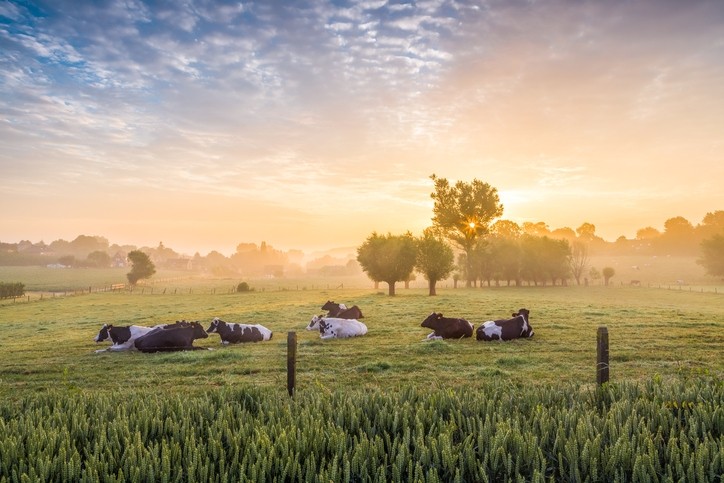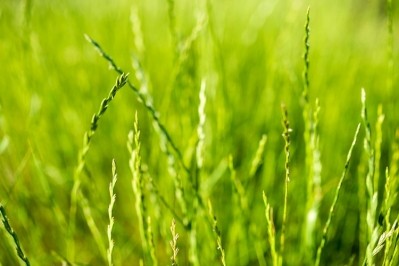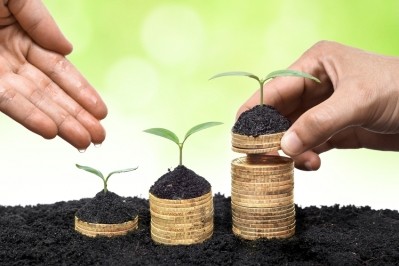UN climate change report ‘presents commercial opportunities for sustainable meat’: farmer

Press reports have focused on suggestions from a United Nations report that eating less meat and switching to a plant-based diet will reduce climate change by saving millions of square miles of land from being degraded by farming.
Greenpeace, meanwhile, used the Intergovernmental Panel on Climate Change report to pressure European Commission president, Ursula von der Leyen, for her failure to so far “acknowledge the need to address the impact of farming and meat consumption”.
But the IPCC report in fact suggested a switch to more sustainable sources of both plant-based food and meat in the effort to keep global warming to below 2ºC as per the Paris Agreement.
“Some dietary choices require more land and water, and cause more emissions of heat-trapping gases than others,” said Debra Roberts, Co-Chair of IPCC Working Group II. “Balanced diets featuring plant-based foods, such as coarse grains, legumes, fruits and vegetables, and animal-sourced food produced sustainably in low greenhouse gas emission systems, present major opportunities for adaptation to and limiting climate change,” she said.
The report added: “An overall focus on sustainability coupled with early action offers the best chances to tackle climate change. This would entail low population growth and reduced inequalities, improved nutrition and lower food waste.”
Red meat is getting a bad press and we’re all confused
Patrick Holden is founding director of the Sustainable Food Trust, a charity which promotes sustainable food systems.
Himself a farmer in Wales with an 80-cow dairy herd, he praised the UN’s "excellent" report that he said was "confirming the scale and extent to which unsustainable agriculture is contributing towards greenhouse gas emissions."
But he was critical of the interpretation that some of the news media are giving to the content of the report.
"We support just about all the recommendations they [the UN] are making,” he pointed out. But the UN report is not recommending to move away from meat consumption, he argued.
“What they are actually recommending is to move towards the consumption of meat products from sustainable farming systems. That really should be the key debate now. We should all be thinking about the answer to the question: what should you eat to be sustainable and healthy."
He claimed the current zeitgeist, among consumers at least, is wrong about red meat.
"If you ask young people what meat is the most sustainable to eat, they will probably say chicken,” he stated. But “intensively produced chicken and pork are the least sustainable meats to eat. The most sustainable meats to eat are lamb and beef and dairy products from mainly grass-fed ruminants.”
A new prescription is needed
"If everyone went vegan in the UK it would be impossible to have a sustainable food system,” said Holden. The changes in our diet that will be most consistent with the IPCC report, Holden suggested, would be to align our future diets with the productive capacity of the sustainable food systems which we need to replace the ones we have at the moment.
“We also need to realign our diets with the production capacity of the region where we live,” he added. “The UK is two thirds grassland and the only way you turn grass into food we can eat is to graze it with rudiment animals."
His point is that “sustainably managed livestock will need to play an essential role in the future sustainable food systems we need to replace the ones we've got at the moment."
But this message risks being lost on the food industry, he warned, which is under pressure to source cheaply and is therefore unable to source sustainably.
"The cheap food we are buying is adding to the problem of climate change and there is a lot of misinformation being broadcast by the media which is adding to the problem.
“There has been a been a big shift to veganism and vegetarianism which isn't necessarily part of the solution. And there is a corresponding decline in the market for red meat, so much so that the livestock producers don't know what to do. So the messaging needs to change because otherwise the food industry won't be able to respond.”

‘Veg only half as nutritious as it used to be’
Vegetables are just as big a part of the message, according to Holden, and it is equally important that vegetables are sustainable, he pointed out.
"A sustainable diet needs to be such from both sides of the fence not just the animal arena," he said. "Most people who think the right thing to do is to move to a plant-based diet haven't really though that through in terms of which plant-based products there are going to eat. For instance if you’re a mainly plant-based eater and your plant material is palm oil, or genetically modified soy or almond milk or avocados - all of those products are coming from unsustainable systems which often cause deforestation and which are carbon emitting and polluting.”
So we need to eat more vegetables that are grown as part of a “proper crop rotation”, and we need to buy meat that has “come from truly sustainable systems.”
If supermarkets and others in the food industry start to give their customers this choice, the public, he believed, will gradually get the message and respond.
“At the moment if you want to buy mainly grass-fed meat from sustainable agriculture it’s almost impossible. It's the same with vegetables - you cannot exercise your enlightened buying power in a way which satisfies this new prescription that we all ought to have. I think there are new commercial opportunities which will emerge for supermarkets who start to source in this way.”
Everyone, he pointed out, including the food industry, needs to become “much more sophisticated in our understanding about which foods we are currently eating are part of the problem and which are part of the solution - and the answer is not simple."
"The food industry is currently in a race to the bottom on price. In the end, that's self-destructive for everyone involved.
“We need the polluters to pay and we need to redefine the carrot and the stick that farmers have so doing the right thing pays and doing the wrong thing doesn't - and that will help the food industry to respond.
“The likes of Unilever and Nestle are trying very hard to improve their sustainability offer but they are finding it difficult because of the absence of the application of the polluter pays principle."


















